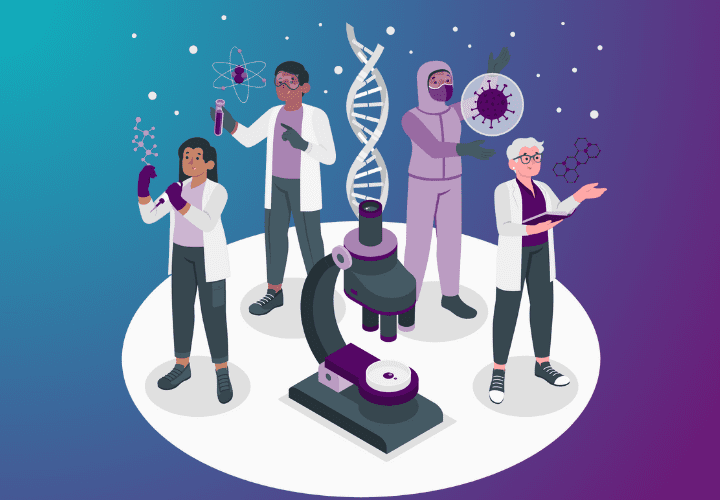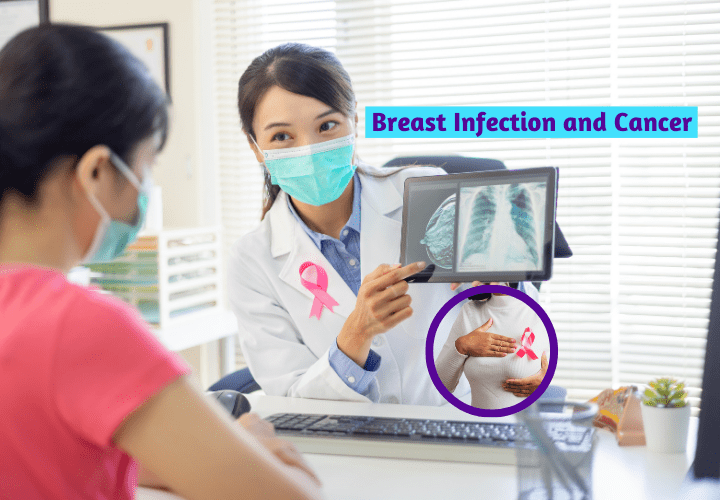A Comprehensive Introduction guide to Cancer

A Comprehensive Introduction guide to Cancer
- onco
- August 8, 2024
is one of the most ambitious diseases facing humanity nowadays, which is affecting hundreds of thousands of people globally. This manual offers an overview of cancer, including its causes, types, prognosis, remedies, and prevention techniques. In cancer, abnormal cells proliferate and spread out of control, as these cells can form restrictions known as tumours, which can be either malignant (cancerous) or benign (non-cancerous). Malignant tumours overspread surrounding tissues and can spread to different parts of the body via the blood and lymphatic structures, a technique called metastasis. For those seeking specialized care, the cancer hospital in Delhi provides cutting-edge treatment options. In this comprehensive guide, we will delve into a detailed introduction to cancer.
Causes of Cancer
Cancer can result from various factors, often involving an aggregate of genetic predisposition and environmental influences. Here, we’ll discuss a few immediate causes:
- Genetic Factors: Some humans inherit mutations in particular genes from their parents, which increases their vulnerability to certain forms of most cancers.
- Environmental Factors: Exposure to certain chemical substances and pollutants can lead to cancer. Tobacco smoke, asbestos, and benzene are famous cancer-causing agents.
- Lifestyle Factors: Diet, physical activity, and behaviour, inclusive of smoking and excessive alcohol consumption, can impact cancer hazards. A diet high in processed meats and occasionally in fruits and veggies, at the side of a sedentary lifestyle, has been associated with various cancers.
- Infections: Certain viruses and microorganisms can cause most cancers. For example, Human Papillomavirus (HPV) is linked to cervical cancer, and Helicobacter pylori infection is related to most stomach cancers.
- Radiation: Both ionizing radiation (such as from X-rays and radioactive materials) and ultraviolet radiation from the sun can harm DNA and result in most cancers.
Types of Cancer
Over 100 different kinds of cancers are categorized primarily based on the tissue or organ where they originate. Here are some of the most common types of cancers discussed below:
- Carcinomas: These cancers originate in the epithelial cells that line the surfaces of organs and tissues. Lung, colorectal, and breast cancers are common examples.
- Sarcomas: These types of cancers expand in connective tissues, including bone, muscle, and fat. Osteosarcoma (bone cancer) and liposarcoma (fat tissue cancer) are examples.
- Leukemias: These cancers begin within the bone marrow and affect the blood and lymphatic machine. They do not form strong tumours, however, result in the overproduction of odd white blood cells.
- Lymphomas: These cancers originate inside the lymphatic system, a part of the immune system, whose main types are non-Hodgkin lymphoma and Hodgkin lymphoma.
- Melanomas: Melanomas are dangerous forms of skin cancer. They are caused by the cells that create the skin pigment melanin, known as melanocytes.
Diagnosis of Cancer
Detecting most tumours early significantly increases the likelihood of successful treatment. Let’s delve into the various techniques used to diagnose cancers:
- Screening Tests: These are recurring checks that are accomplished on asymptomatic people to discover most cancers early. Examples include mammograms for breast cancer, Pap smears for cervical cancers, and colonoscopies for colorectal cancer.
- Imaging Tests: Techniques such as X-rays, CT scans, MRI, and ultrasound are used to create distinctive photos of the internal body, helping to find tumours and determine their size and unfold.
- Biopsy: A biopsy involves taking a small tissue sample from a suspicious region to study it under a microscope for most cancer cells. This is frequently the definitive technique for diagnosing cancer.
- Blood Tests: Certain cancers release materials called tumour markers into the blood. Tests measuring these markers can be helpful in analyzing and tracking remedy progress. For instance, Prostate-Specific Antigen (PSA) ranges display screens for most prostate cancers.
Treatment of Cancer
Cancer treatment relies upon the type, level, and vicinity of most cancers and the affected person’s ordinary health. Common treatment alternatives encompass:
- Surgery: Surgical tumour removal is regularly the first line of treatment for many cancers. It may be curative for localized cancers that have now not spread.
- Radiation Therapy: This remedy uses excessive-electricity radiation to kill cancer cells or decrease tumours. It may be used alone or in aggregate with other remedies.
- Chemotherapy: Chemotherapy includes using drugs to kill rapidly dividing cancer cells. It may be systemic (affecting the whole frame) or localized (targeting specific areas).
- Immunotherapy: This remedy boosts the frame’s immune gadget to assist it in apprehending and wrecking most cancer cells. Immune checkpoint inhibitors and CAR T-cell therapy are examples of immunotherapy.
- Targeted Therapy: These capsules target particular molecules that are concerned with cancer cell growth and survival. By interfering with those molecules, centred remedies can forestall the increase of cancer cells.
- Hormone Therapy: This remedy is used for cancers which might be hormone-touchy, such as breast and prostate cancers. It entails blocking the body’s ability to supply hormones or interfering with hormone motion.
- Stem Cell Transplant: This process is frequently used for blood cancers like leukemia. It involves changing diseased bone marrow with healthful stem cells that can regenerate new blood cells.
Prevention of Cancer
While it is not possible to avoid every cancer, the risk can be significantly decreased by adopting preventative measures and leading a healthy lifestyle. And this should motivate and encourage you to take control of your health.
- Avoid Tobacco: Smoking and using different varieties of tobacco are the main reasons for preventable cancer. Quitting smoking substantially reduces the chance of lung and other cancers.
- Healthy Diet: Eating a weight loss program that is rich in culmination, veggies, complete grains, and lean proteins whilst proscribing processed ingredients and pink meats can lower cancer hazards.
- Physical Activity: Regular workout helps preserve a healthy weight and reduce the danger of several styles of cancer, along with breast and colorectal cancers.
- Limit Alcohol: Drinking less alcohol reduces the risk of developing esophageal, breast, and liver cancers.
- Sun Protection: Protecting the skin from excessive solar publicity through sunscreen, sporting shielding clothing, and avoiding tanning beds can prevent most cancers.
- Immunization: Vaccines for HPV and hepatitis B viruses, which are responsible for most malignancies, are available. Vaccination can stop infections before they cause cancer.
- Regular Screenings: Participating in endorsed cancer screening packages can come across cancer early while it’s miles maximum treatable.
Cancer is a complicated disorder, however advances in research, prognosis, and treatment have appreciably advanced outcomes for many sufferers. Understanding cancer causes, types, and remedy options is critical for prevention, early detection, and effective control. By adopting healthful lifestyle alternatives and staying knowledgeable about cancer screening and prevention techniques, people can reduce their chances and enhance their chances of a favourable prognosis. Support systems and sources are essential in supporting patients in navigating their adventure with most cancers and ensuring they receive the care and help needed to maintain their satisfactory lifestyles.
Oncoplus, the finest cancer hospital, is the place to go if you have cancer and want the best therapies available. Here, our experts are aware of the pain that cancer patients endure. Thus, we work hard daily to ensure that our patients have a positive experience with our compassionate team and staff. We also hold the distinction of being the best hospital for blood cancer in Delhi since we firmly think that a pleasant environment contributes to a quick recovery.





Leave a Reply